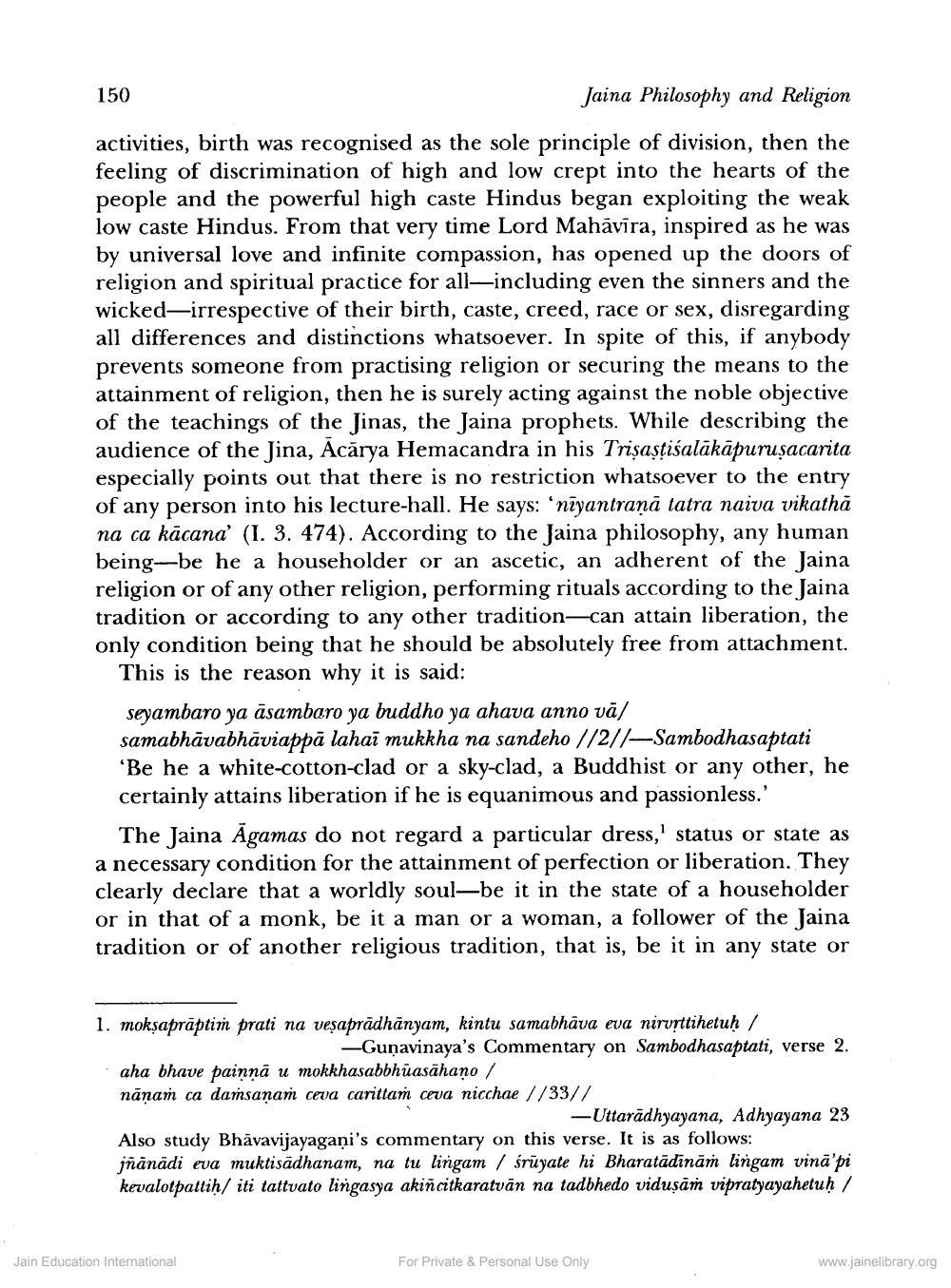________________
150
Jaina Philosophy and Religion
activities, birth was recognised as the sole principle of division, then the feeling of discrimination of high and low crept into the hearts of the people and the powerful high caste Hindus began exploiting the weak low caste Hindus. From that very time Lord Mahāvīra, inspired as he was by universal love and infinite compassion, has opened up the doors of religion and spiritual practice for all-including even the sinners and the wicked-irrespective of their birth, caste, creed, race or sex, disregarding all differences and distinctions whatsoever. In spite of this, if anybody prevents someone from practising religion or securing the means to the attainment of religion, then he is surely acting against the noble objective of the teachings of the Jinas, the Jaina prophets. While describing the audience of the Jina, Acārya Hemacandra in his Trişastiśalākāpuruşacarita especially points out that there is no restriction whatsoever to the entry of any person into his lecture-hall. He says: 'niyantrană tatra naiva vikatha na ca kācana' (I. 3. 474). According to the Jaina philosophy, any human being-be he a householder or an ascetic, an adherent of the Jaina religion or of any other religion, performing rituals according to the Jaina tradition or according to any other tradition-can attain liberation, the only condition being that he should be absolutely free from attachment.
This is the reason why it is said:
seyambaro ya āsambaro ya buddho ya ahava anno vā/ samabhāvabhāviappă lahai mukkha na sandeho //2/7-Sambodhasaptati 'Be he a white-cotton-clad or a sky-clad, a Buddhist or any other, he certainly attains liberation if he is equanimous and passionless.'
The Jaina Āgamas do not regard a particular dress,' status or state as a necessary condition for the attainment of perfection or liberation. They clearly declare that a worldly soul-be it in the state of a householder or in that of a monk, be it a man or a woman, a follower of the Jaina tradition or of another religious tradition, that is, be it in any state or
1. mokşapraptim prati na veşaprādhānyam, kintu samabhāva eva nirvyttihetuḥ /
-Guņavinaya's Commentary on Sambodhasaptati, verse 2. aha bhave painnā u mokkhasabbhuasähano / nānam ca darsanam ceva carittam ceva nicchae //33//
-Uttarādhyayana, Adhyayana 23 Also study Bhävavijayagani's commentary on this verse. It is as follows: jñānādi eva muktisādhanam, na tu lingam / śruyate hi Bharatādinām lingam vinā'pi kevalotpattih/ iti tattvato lingasya akiñcitkaratvān na tadbhedo vidusāṁ vipratyayahetuḥ /
Jain Education International
For Private & Personal Use Only
www.jainelibrary.org




